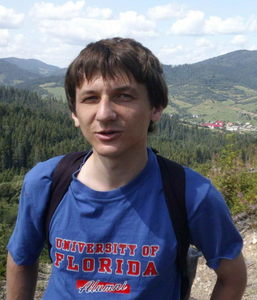Recording: https://disk.pku.edu.cn/link/AAEFC9B9CF87E843029DA3CFD8B9D0C9DD
Abstract: 50 years ago D. Rolfsen asked two questions: (A) Is every knot in the 3-sphere isotopic (=homotopic through embeddings) to a PL knot (or, equivalently, to the unknot)? In particular, is the Bing sling isotopic to a PL (=piecewise linear) knot? (B) If two PL links in the 3-sphere are isotopic, are they PL isotopic?
We show that the answer to (B) is positive if finite type invariants separate links in the 3-sphere. [arXiv:2406.09331]
Regarding (A), it was previously shown by the author that not every link in the 3-sphere is isotopic to a PL link [arXiv:2011.01409]. Now we show that the Bing sling is not isotopic to any PL knot by an isotopy which extends to an isotopy of 2-component links with linking number 1. Moreover, the additional component may be allowed to self-intersect, and even to get replaced by a new one as long as it represents the same conjugacy class in G/[G',G''], where G is the fundamental group of the complement to the original component. [arXiv:2406.09365]
The proofs are based in part on a formula explaining the geometric meaning of the formal analogues of Cochran's derived invariants for PL links of linking number 1. These formal analogues are defined by using the 2-variable Conway polynomial. [arXiv:math/0312007]
Bio: Sergey Melikhov is a senior researcher at the Steklov Mathematical Institute. He graduated from Lomonosov Moscow State University (2001) and obtained a k.f.m-n. (PhD) degree from the Steklov Institute (2004) and another PhD degree from University of Florida (2005), with no overlap in content between the two dissertations. Received the Moebuis Contest Prize of the Independent University of Moscow (2000) and Russian Academy of Sciences Medal for Young Scientists (2006). Held visiting positions at the University of Tennessee (2007/08), Dartmouth College (2012) and Institute for Advanced Study (2013). Research interests include geometric topology (links modulo knots, embedding theory, combinatorial topology), algebraic topology of metrizable spaces (shape theory and axiomatic homology), foundations of mathematics (extensions of intuitionistic logic, meta-logics, constructive type theories).
